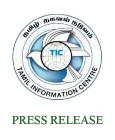| Who We Are | |
| Vision and Mission | |
| FAQ | |
 |
|
||||||||||||||||||||
Home |
About us |
Events |
Ways to get Involved |
Publications |
News Room |
Search |
Contact us |
| Join Us | |
| Fundraise | |
| Campaigns | |
| Volunteer | |
| Join a Project | |
| TIC Publications | |
| Other Publications | |
| Monographs | |
| Periodicals | |
| Free Publications | |
| News | |
| Features | |
| Video News | |
|
|
||||||||||||||||||||||||||||||||||||||||||||||||||||||||||||||||||||||||||||||||||||||||||||||||||||||||||||||||||||||||||||||||||||||||||||||||||||||||||||||||||||||||||||||||||||||||||||||||||||||||||||||||||||||||||||||||||||||||||||||||||||||||||||||||||||||||||||||||||||||||||||||||||||||||||||||||||||||||||||||||||||||||||||||||||||||||||||||||||||||||||||||||||||||||||||||||||||||||||||||||
|
|
|
|
|
|||||||||||||||||||||||||||


